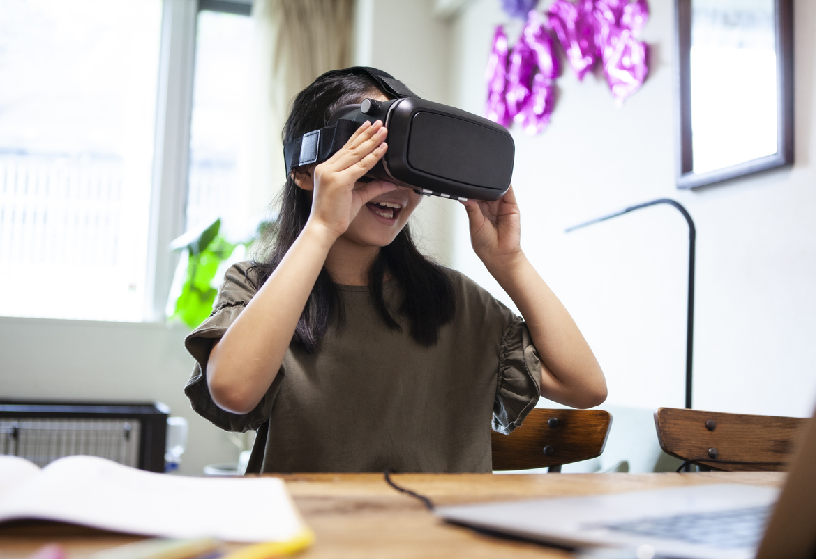Virtual events have become a cornerstone of business communication and community engagement in the digital transformation era. From webinars and virtual conferences to online training sessions and live streaming, clear communication and high-quality audio have never been more critical. Headsets, available exclusively through Business Headsets, play a vital role in ensuring that virtual events are practical but also engaging and professional. This blog post explores how these unique headsets enhance virtual events by improving audience engagement, meeting technical requirements, and addressing everyday challenges.

Virtual events rely heavily on audience engagement; high-quality headsets are essential for maintaining this engagement. Clear audio allows presenters to convey their message effectively, while participants can listen and interact without straining to hear. When audio quality could be better, it can lead to misunderstandings, distractions, and a lack of engagement from the audience. By using headsets with superior sound quality, presenters can ensure that their voice is heard clearly, enhancing the overall experience for attendees. This clarity is crucial in maintaining the audience’s attention and providing the content delivered is impactful and memorable.
Technical requirements for virtual events are also a key consideration. Headsets with advanced features such as noise-cancelling microphones and high-fidelity audio are essential for meeting these requirements. Noise-cancelling technology helps to eliminate background noise, allowing presenters and participants to focus on the event without distractions. This is particularly important in home environments where external noises can be unpredictable. Additionally, high-fidelity audio ensures that every presentation detail is delivered accurately, providing a professional experience for all attendees. Platforms like Business Headsets offer a range of products that meet these technical requirements, ensuring a seamless virtual event experience.
The needs of presenters and participants in virtual events can differ significantly, and suitable headsets can cater to both. Presenters require headsets that provide precise audio and reliable microphones to ensure their message is delivered effectively. Features like wireless connectivity and comfortable design are also important, as they allow presenters to move freely and maintain comfort during long sessions. On the other hand, participants need headsets that provide clear audio for listening and comfortable wear for extended periods. Virtual event organizers can ensure a smooth and engaging experience for everyone involved by selecting headsets that cater to these specific needs.
Several successful virtual events have demonstrated the profound impact of high-quality headsets on the overall experience. For instance, a leading tech company hosted a global virtual conference using headsets from Business Headsets for their presenters and critical participants. The result was a highly engaging event with crystal-clear communication and minimal technical issues. Attendees reported high levels of satisfaction with the audio quality, and the event organizers noted a significant reduction in troubleshooting compared to previous events. Another example is an online education provider that used professional headsets for their instructors during virtual classes. This strategic investment led to improved student engagement and better learning outcomes, as instructors could easily communicate more effectively and manage their virtual classrooms.
Despite the benefits, there are common challenges in virtual events that must be addressed. Connectivity issues, background noise, and varying audio quality can all impact the success of an event. High-quality headsets can mitigate many of these challenges. For instance, headsets with robust Bluetooth technology and multiple connectivity options ensure stable connections across different devices. Noise-cancelling features help manage background noise, creating a more controlled and professional environment. Additionally, educating presenters and participants on adequately using their headsets can prevent technical issues and enhance the overall experience. Platforms like Business Headsets provide support and resources to help users get the most out of their devices.
In conclusion, headsets play a crucial role in the success of virtual events by enhancing communication, improving audio quality, and addressing common technical challenges. As virtual events continue to grow in popularity, investing in high-quality headsets from trusted providers like Business Headsets is not just a necessity but a strategic move. These devices ensure that presenters and participants can engage effectively, leading to more productive and enjoyable virtual experiences. The future of virtual events will undoubtedly see further advancements in headset technology, offering even more significant enhancements in audio quality and user experience. By staying ahead of these trends and choosing the proper headsets, organizations can ensure that their virtual events remain effective and engaging, fostering better communication and connection in the digital age.
